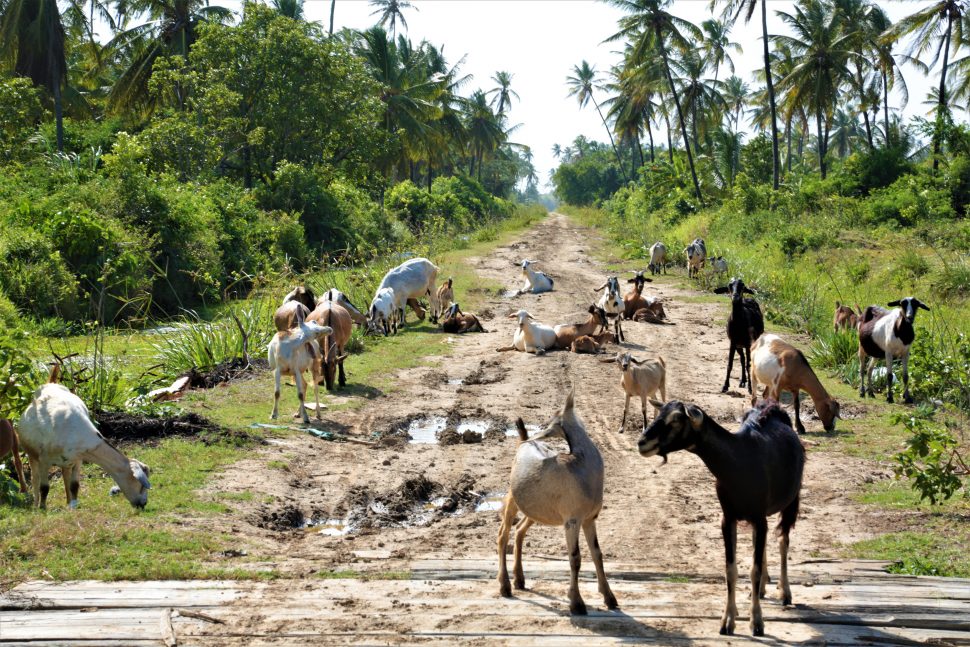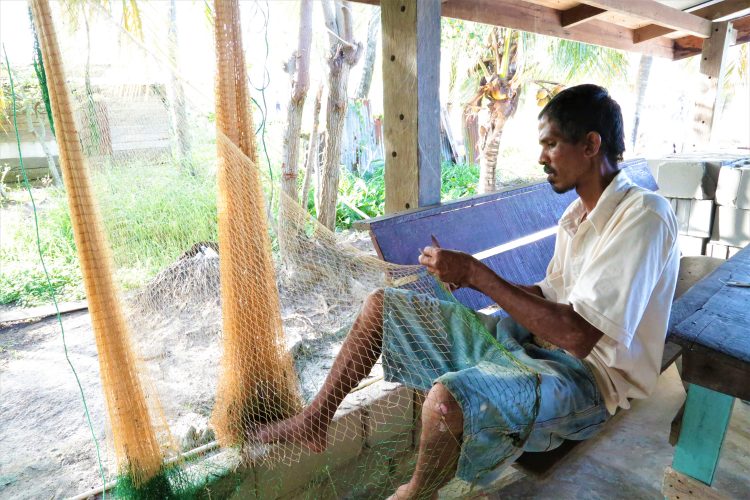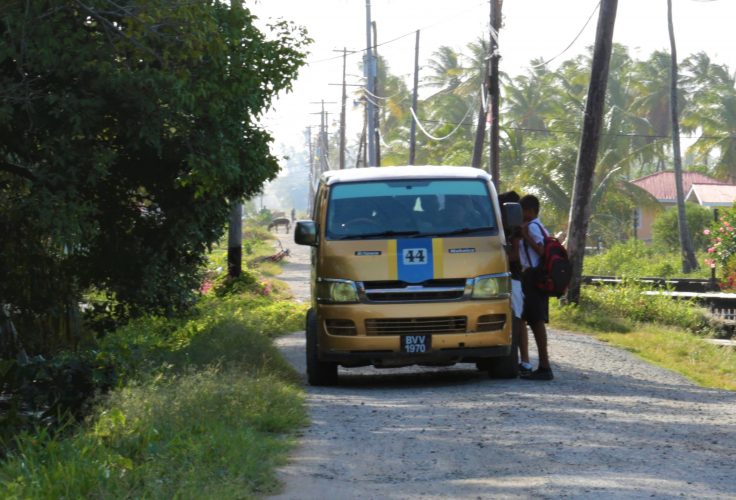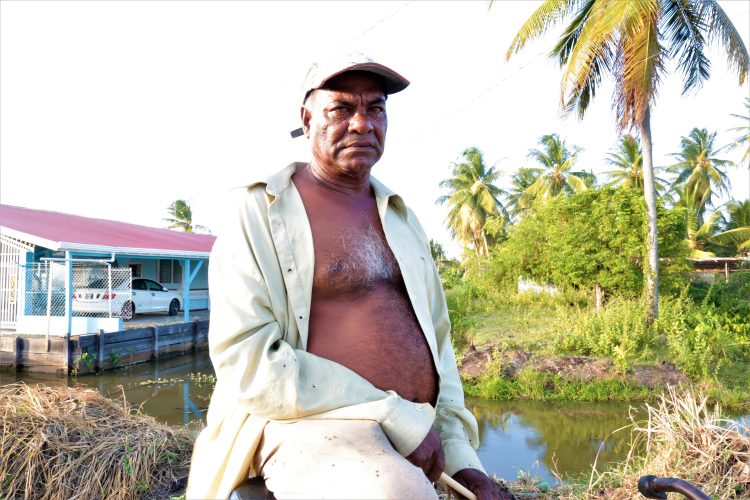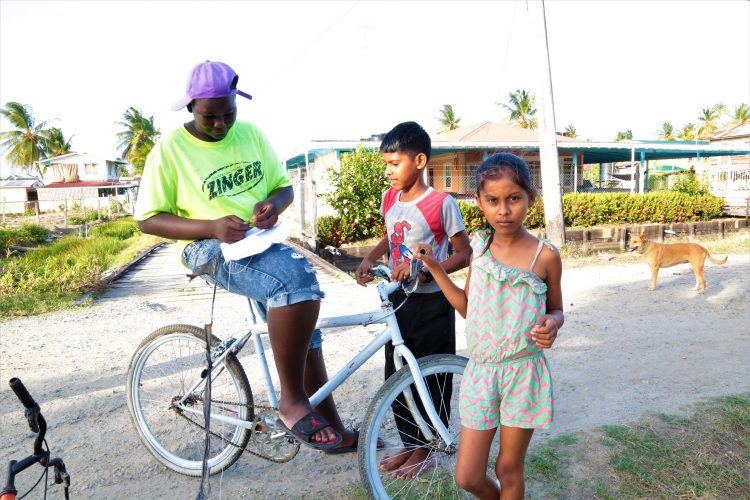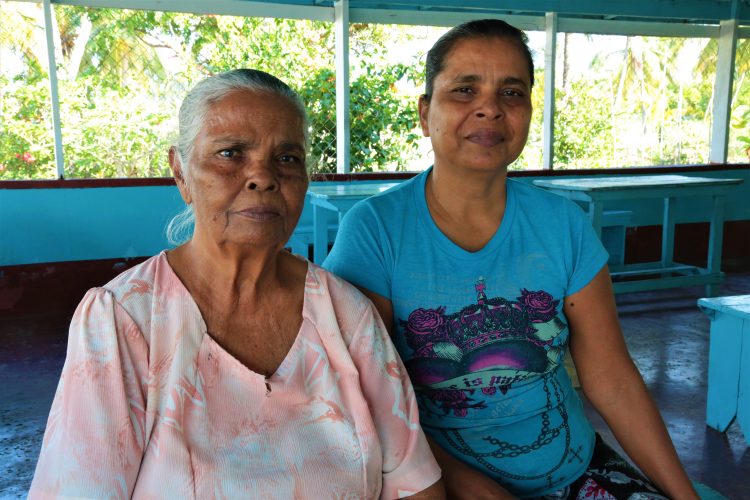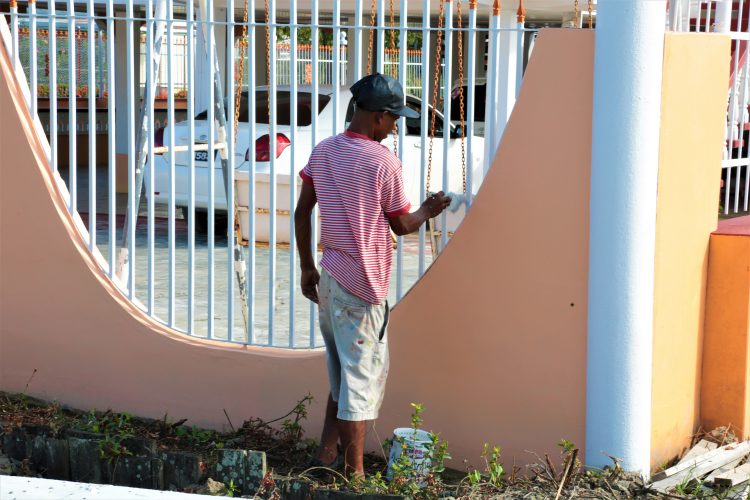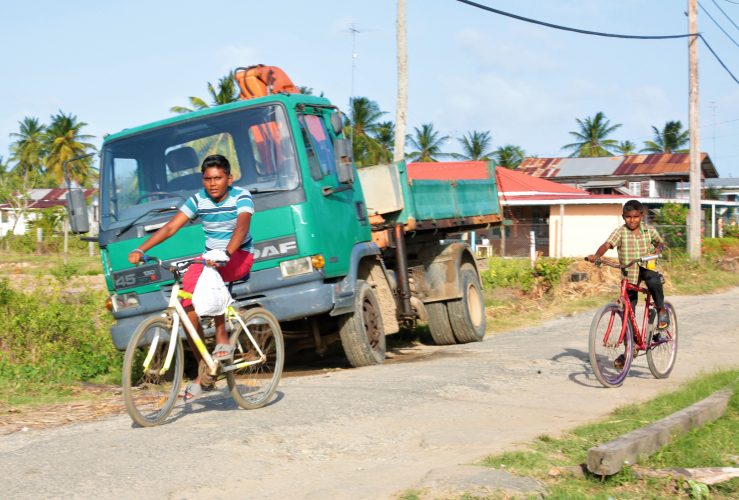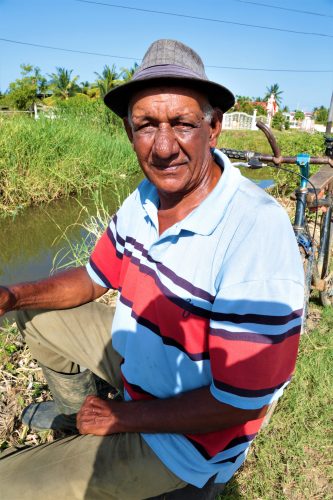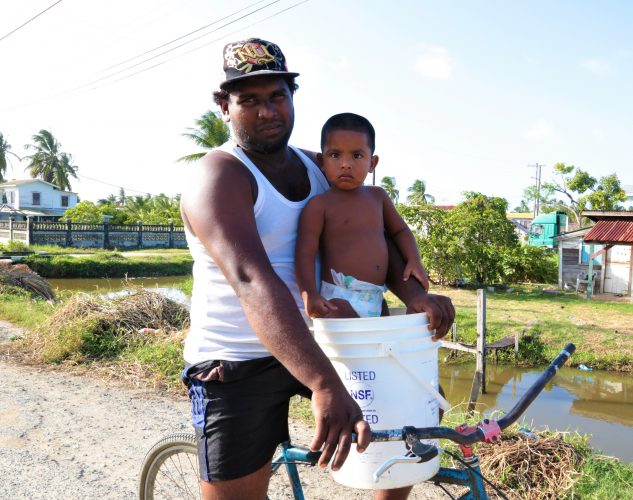Good Hope is a community in Mahaica flanked by Hand-en-Veldt and Helena Number Two; it has approximately 500 residents.
Farming, including cattle rearing has been the main economic activity until recently, when many of the residents branched out into other fields of work like carpentry, fishing, driving, and teaching among others.
Several residents said that their grandparents were born in Good Hope, which would account for the village being in existence for at least 100 years; no one knows for sure just how far back it dates.
I met Suchand Beharry on a dam leading to the backdam. He sat on a log with a stick in his hand watching over his herd of 60 goats.
“Me born and grow in Good Hope,” he said. “Me mother from Annandale and me father from Good Hope. Meh father side from Good Hope. Since me small ah farming wuk meh do.”
Beharry attended Helena Primary dropping out when he was in Standard 3 (Grade 5). The man explained that he was the second of four boys from the union of his father and mother. However, his father died when he was very young, and his mother remarried and had another four sons and a daughter.
Beharry began working on private farms before he was 12 years old. The man shared that he worked for 50 cents a day, which was later raised to 75 cents then $1. By the time he was 17 years old, he was being paid $1.50 a day. He then stopped working on private farms and began working with his stepfather but wasn’t paid a wage as his stepfather provided for the family.
“We bathe in the mill-walk [irrigation canal] when we bin small,” the 60-year-old shepherd recalled. He went on to say that they had lots of fruits to choose from in the backdam.
He said also that except for working on private farms and with his stepfather, he has never worked with anyone else. He planted mostly cash crops such as bora, eggplant, tomato and pepper which he sold wholesale from his home.
He reminisced about the days of the train. He didn’t travel much, but whenever he did it was either to Berbice or Georgetown by train before its operations ceased.
“The nice thing about living here is that you get to do your own work. It got farms, you nah got to wuk with nobody. Before time nobody used to leff this village to go looking for work. Is only now that people nah care much about farming and going outside to look fuh wuk. We gat teachers now; before time we nah had no teacher ah this village,” he said.
A normal day for Beharry begins around 8 am or 9 am in the farm. Around 3 pm he lets his goats out and would sit and watch them graze until the afternoon starts to cool and then takes them in as he lacks a pasture for them.
At her shop, Himwanttie Hansraj sat listening out for her customers. Growing up she attended Helena Primary School and would have gone on to Bygeval Secondary School, but her mother fell ill at that time.
The woman recalled that for a number of years her father worked with the government until he was encouraged by a friend to take up farming to sustain his family better. He took his friend’s advice and found that he was right.
“Every morning before we left for school, we watered the plants. After school we went out in the garden to water the plants again and pull out the weeds. Our life surrounded farming from since we were little. My mother worked along with my father. My father forked, she forked even and straight with him,” Hansraj said.
She reminisced about playing sal out and cricket with her father, while her mother looked on. Those occasions were rare, she said, but she cherishes them. Her father has since passed on.
Her mother she said is believed to be the second oldest person in the village. She is 86 years old. For many years her mother commuted to the city where sold goods at Bourda Market.
Though living in Good Hope is relatively safe, it would be wise to not be on the road at nights; persons have been robbed. One particular man was beaten and robbed around 4 am right in front of her house.
Aside from this, Hansraj noted that the other thing she is affected by is that business in Mahaica is very slow. Persons, she said, would order things from her that she would purchase for them but because things are so bad, they never show up for the ordered goods. In addition to this more persons take goods on credit than some years prior.
Nonetheless nowhere else could be her home, the woman said. Living in Good Hope comes with benefits such as having the opportunity to farm and being in an atmosphere where the air is fresh. She highlighted a comparison with Georgetown noting that if a city dweller wanting mangoes may have to head to the market, but in Good Hope you can always get one for free whether you’re picking one of yours and getting it from the neighbours.
“The environment and the people here is good,” Beade Mangal said, adding that the people living in Good Hope are hardworking people. He sat on a bench knitting his cast net. He was born and raised in Good Hope and so were his parents and grandparents.
His work life, the man noted, began with his father-in-law fishing out in the Atlantic. Some years after he took up carpentry with his brother. Now, however, he has returned to fishing.
He said that while his village is safe to live in, crimes have increased, and he wants to see the previous administration back in power as he believes the economy would be better resulting in a low crime rate.
Mangal has more than one cast net with peculiar names for them. He calls one ‘All gone’, since, according to him, when he throws it out into the water, nothing escapes it. Another of his cast nets is called ‘Woman sit down careless’ as that particular net traps any fish that is swimming “carelessly”. He has a seine also which is specifically for catching tilapias.
On the days he goes fishing, he leaves home at 2.30 am or 3 am the latest. A good day means that he would return the same day, but if the catch is not good then he stays overnight.
Pointing out the drain in front of him, Mangal noted that the villagers clean the drains themselves and do not depend on the Neighbourhood Democratic Council to do so. He has 2 daughters and a son and would like to see better roads, especially for his children’s sake. He noted that when the rains come, the older ones in the village can trudge through the mud, not the children.
Deonarine Ramjattan slowly pushed his bicycle behind his sheep; he was taking them home. He also plants rice. He grew up working on the farm alongside his parents.
“This area here, people ah do most farming, planting rice. The good thing about living here is that you can plant,” the 63-year-old man said.
Ramjattan said that years ago there was a coconut estate in Hand-en-Veldt. He was a young boy when he began working on the estate picking sometimes 800 coconuts a day. He had to peel them also and fetch them out to the road. He said coconut picking was not easy work adding that it was his fault that he ended up doing same as his father had sent him to “learn mechanic work” but he let that opportunity slip by. With all that he has experienced, he said, he pushed for his three daughters to follow through with their education.
His work life saw him working on farms, picking coconuts, working in the gold mines and today he is farming again. He also drives a tractor now, and ploughs for different farmers.
Sunita Shivnarine hails from Stewartville, West Coast Demerara but spent most of her childhood at Supply, Mahaica. She moved to Good Hope 29 years ago after getting married. Today, however, she is a single mother of three children. Her eldest, a 27-year-old son, has a family of his own and no longer lives with her. Her 2 daughters both attend Bygeval Secondary School in Chelsea Park, Mahaica.
“I like it here. It’s quiet and peaceful,” she said. Crime is on the increase, she said, mentioning that persons complain of persons breaking into their homes at night. She, however, has not been a victim of this.
The woman is a domestic help which she does three times a week. It is challenging being a single mother, Shivnarine said, especially when it came to raising girls. With both her girls at secondary, she said, they are tasked with lots of homework and assignments which often take them late into the nights, so she avoids asking them to do chores as much as she can.
Even as we spoke the older of the 2 girls sat at a table working on an assignment. The girls walk a short distance to the main road and take a bus to school. The five-minute journey comes at a cost of $100 per child. The buses, Shivnarine said, used to traverse her street, but the road is now so bad that they no longer do so.
Shivnarine never had the opportunity of riding the trains but after she moved to Good Hope the train tracks still lay along the route. She would cross them every time she visited her relatives in Supply or headed to the Mahaica Market. They are not there anymore, of course, but the railway embankment road, as it is now called, is the highway that leads to Berbice.
Whenever she is at home, she tends her kitchen garden which is a big support to the family. On Sundays she attends the mandir in Hand-en-Veldt.
Aside from the road needing to be fixed, she pleaded with the NDC to ensure that the drains on her side of the road are cleaned pointing out that across the road in Hand-en-Veldt, the drains have been cleaned.
